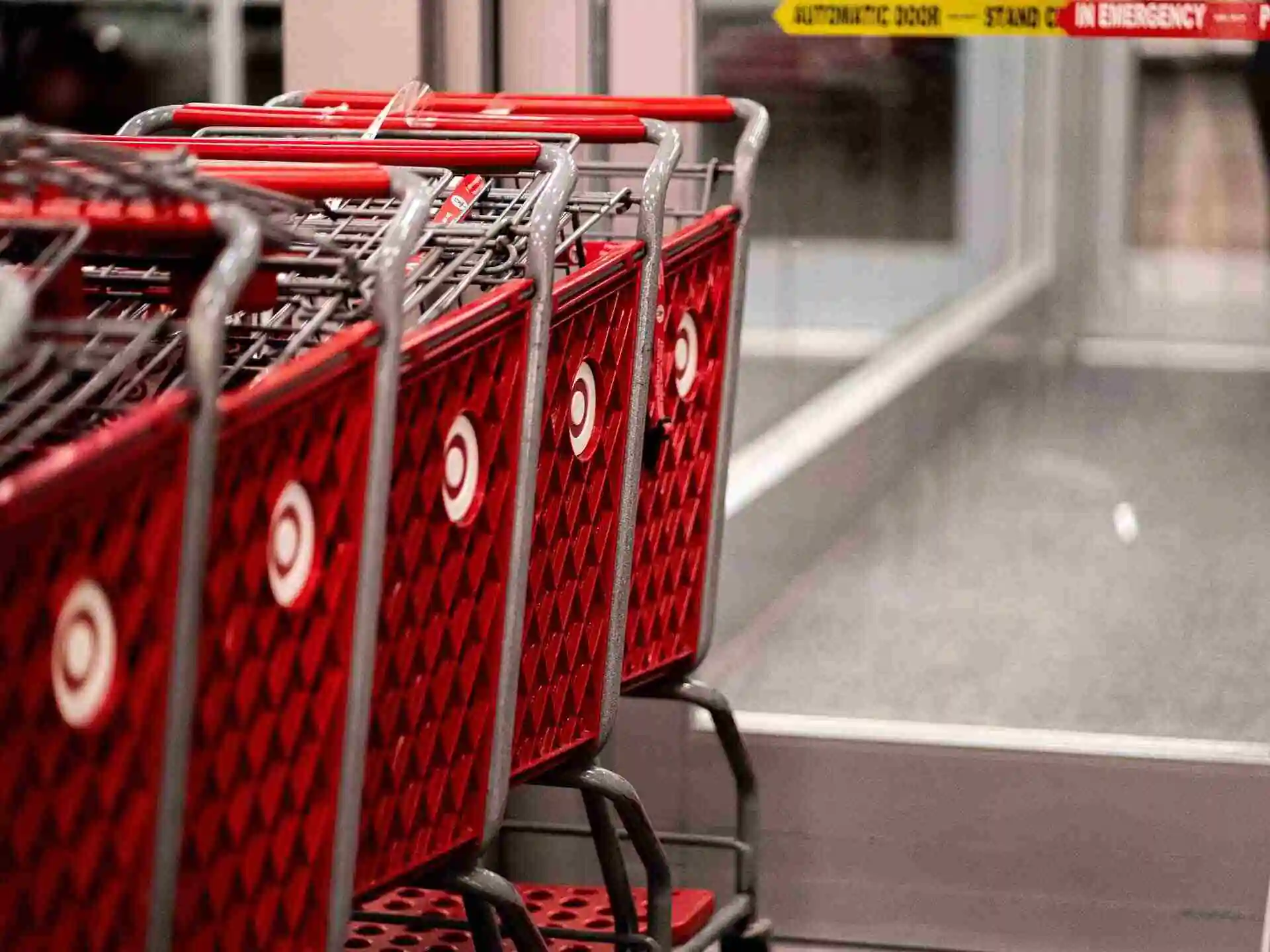Founded in 1962, Target is now a major retailer with more than $93.6 billion in yearly revenues and a ubiquitous presence — 75 percent of Americans live 10 miles or less from a Target location. Over the years, Target has been involved in many personal injury claims which are filed after customers are injured on the store premises or due to Target truck accidents.
What Kinds of Personal Injury Cases Tend to Be Brought Against Target?
A person can file a Target injury claim if they have been injured by Target’s negligence. To successfully file a claim, the injured person must be able to show that Target had a duty of care to them, that Target violated that duty, and that this violation led to a serious injury. The most common types of lawsuits that stem from Target injuries include:
- Premises liability claims. A common Target injury claim occurs because someone is injured on Target property, usually in a store. For example, this type of claim can occur if a shelf is not secured properly and falls on a shopper. A premises liability claim may also be pursued if a shopper falls due to a dangerous substance located on the floor that Target knew or should have known about.
- Wrongful death claims. If someone is killed by a Target trucking accident or due to a store injury, the surviving family of the victim may be able to launch a wrongful death claim against the retailer.
- Motor vehicle accident claims. Target trucks carry cargo to and from Target stores every day and while drivers are expected to be properly trained and cargo is required to be secured correctly, in some cases negligence can lead to serious car accidents and traffic accidents, which lead to injury. In these cases, injured parties may have a claim against the driver, Target, or a third party.
- Products liability claims. Some claims have been filed against Target because the stores have sold products that have caused serious injury, but liability must be investigated thoroughly in these cases before making the decision to sue.
These are not the only types of claims which can occur. In 2015, for example, Target agreed to pay $10 million to customers harmed by a data breach. If you have been injured and are not sure whether you have a claim or would like to learn more about what may happen with a potential case, you may wish to consult with a Target personal injury claims attorney.
What Injuries Commonly Occur?
An injury in Target can occur while shopping, it can happen in Target parking lots, or it can involve Target trucks on the roads. Injuries can range from mild to severe, and can include:
- Slip and fall injuries. A Target store has many policies, including a Target injury policy, safety policy, and a system of cleaning and checking that the store is safe for customers. Target is expected to have systems in place to keep floors safe and when they fail to do so and someone is injured, the injured individual may have a claim. The most common injuries in Target tend to be caused by slip-and-falls.
- Spinal cord injuries. Spinal cord injuries can lead to permanent paralysis, and they can occur in serious Target 18-wheeler accidents or other collisions involving commercial trucks owned or leased to Target.
- Fractures. Fractures can happen due to unsafe Target products, due to falls and crushing injuries in Target stores, and due to falls in stores, which can be caused by poor lighting, spills, or badly maintained flooring.
- Soft tissue injuries. Painful injuries such as whiplash, sprains, and soft tissue injuries can occur due to motor vehicle accidents in Target parking lots and in truck crashes involving a Target vehicle.
- Injuries caused by falling goods. When products are incorrectly placed on shelves or when shelves and displays are not secured, these items can fall on customers, causing serious injuries. Head injuries and other catastrophic injuries can also be caused by poor maintenance of store spaces, which can cause light fixtures, ceiling tiles, and other objects to fall and cause injury.
- Amputations. Crushing injuries in Target stores and trucking accidents can cause survivors to lose all or part of a limb. Amputations affect mobility for the rest of a person’s life, so pursuing fair compensation is important.
- Burns. Unsafe products, Target truck accidents, and store incidents can all lead to severe burns which affect a person’s appearance and even potentially their mobility.
Pursuing Target injury compensation after any injury can help you seek compensation for medical bills, lost income, expected future lost income and medical costs, pain and suffering, and other losses. If you have been injured, you may wish to speak to a Houston Target personal injury lawyer to determine whether you have a claim and how much Target injury compensation you may be able to pursue.
Does Target Tend to Settle or Go to Trial?
When an injury happens, Target and its insurance company takes immediate steps to reduce liability exposure and to lower expenses in the case. It’s not unusual for the company to try to offer a Target personal injury lawsuit settlement to try to settle for less than the injuries may be worth. In some cases, large companies like Target may also slow down the claims process to put pressure on injured parties to accept a lower settlement.
When cases do go to court, Target tends to seek to have cases heard in federal courts. If you have a larger claim against the retailer and the injury happened outside of Minnesota, where Target is headquartered, Target will generally seek to have the case heard in federal court.
What Are Some Notable Cases?
Target has had too many personal injury lawsuits to list, but some of the most notable ones may include:
- Product liability. A toddler in California was permanently injured by a potty-training device purchased at Target. The boy’s parents claimed that Target knew others were injured by the product but failed to pull the item from shelves. The case was settled for $56,260 and is notable because it involved an unsafe product sold by Target but made by another company.
- A larger jury verdict. A woman in Pennsylvania slipped on spilled soda in a Target store, suffering a hamstring rupture that left the woman permanently injured. Target claimed they were not liable because the woman should have been more cautious. A jury disagreed and awarded the customer $2.1 million in 2017.
- A parking lot injury. In this case, a woman’s daughter found a hypodermic needle in a South Carolina Target parking lot. The girl picked it up and her mother pushed it out of her hand, getting stabbed in the process. The injury required the woman to be tested for HIV and other diseases and required the woman to take prophylaxis, which left her severely ill. Target alleged Target employees could not have known of the needle but in 2016 a jury awarded the woman $4.6 million. This case is notable because a jury determined Target has a responsibility to customers in the parking area, too.
- A historic case. In 2007, a 60-year-old woman suffered serious, permanent head injuries when an automatic door at a Target store in Illinois knocked her to the ground. Target agreed to pay $7 million, the highest settlement in such a claim for the retailer.
One thing common in all these claims is that Target denied responsibility, arguing that they could not know about and prevent all dangers for all customers. In many cases, Target alleges that customers are liable because they did not exercise due care. In these situations, it may be important to work with an experienced personal injury attorney who can present a strong case.
How to Sue Target: What’s the Process Like?
Every lawsuit is different, but many start with a visit to a personal injury attorney, who can tell you if you have a claim so you can decide whether to pursue compensation. If you work with an attorney, they will take care of many of the steps involved in seeking legal recovery, which include:
- Investigating the circumstances of the injury.
- Filing the lawsuit, giving Target and any other parties named a chance to respond.
- The discovery process, during which evidence is secured and shared with the other parties in the lawsuit.
- Negotiating with other parties, including reviewing any offers made and responding to settlement offers.
- Taking the case to court if a settlement cannot be reached.
A case can lead to a Target personal injury lawsuit settlement, a court win, or a loss. Even after a jury decision, there is also an appeals process that can be considered.
How Can an Experienced Personal Injury Attorney Make It Easier and Maximize Your Chances of Success?
An experienced personal injury lawyer not only knows how to sue Target but has the experience and resources to build a strong case. An attorney can determine the current and future likely expenses of an injury, find and secure evidence that Target violated a Target injury policy or was otherwise negligent, and can negotiate for the fairest financial recovery.
An experienced attorney also has trial experience and is willing to go to court, if appropriate, to seek fair financial recovery. Through it all, your attorney works in your best interests and keeps you informed about your case.
Why Johnson Garcia?
The goal of Johnson Garcia Law is to help those in need. We have more than 30 years of combined experience and a track record of securing over $100 million for our clients. We don’t back down from large companies like Target and we seek financial recovery for our clients so they can pay for medical bills and other expenses.
If you have been injured in a Target store, in a Target parking lot, by a product you have purchased from the company, or in a collision with a Target vehicle, contact Johnson Garcia Law today for a free consultation.


